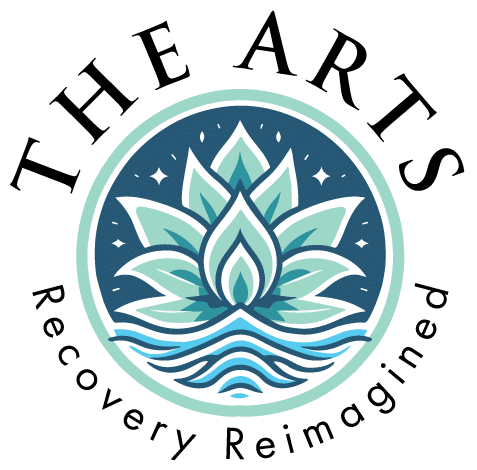Treatment Center For PTSD
- Medically Reviewed By: Dr. Lucille Thomas
Recovery is Possible
Finding Hope: Treatment Center For PTSD
Post-Traumatic Stress Disorder affects around 13 million Americans, leaving invisible wounds that can feel impossible to heal. For many, PTSD doesn’t exist in isolation—it often opens the door to depression, anxiety, and substance abuse as individuals struggle to cope with overwhelming symptoms. The ripple effects can devastate relationships, careers, and overall quality of life.
However, healing is possible. At Absolute Recovery Therapeutic Solutions (The ARTS) in Canoga Park, our comprehensive treatment center for PTSD is here to help. We offer Partial Hospitalization Program (PHP), Intensive Outpatient Program (IOP), and telehealth services as part of our primary mental health and dual diagnosis treatment plans. Our trauma-informed approach addresses both mental health and addiction, providing a path forward for those ready to reclaim their lives.
Recovery from PTSD requires specialized care, and The ARTS understands that each person’s journey is unique. Our individualized treatment plans combine evidence-based therapies with compassionate support, creating an environment where healing from trauma can truly begin.
Partial Hospitalization
Our PHP programs offers clients highly individualized care by our clinical staff to begin the recovery process.
Intensive Outpatient
Our Intensive Outpatient provides extra care for those who have just begun their sobriety and need extra help.
Outpatient
Our Outpatient Program is highly effective at teaching skills needed to stay and remain sober.
Learn More
Understanding PTSD: More Than Just Memories
Post-Traumatic Stress Disorder develops after experiencing or witnessing traumatic events such as combat, accidents, assault, natural disasters, or childhood trauma. While it’s natural to feel distressed after trauma, PTSD occurs when these feelings persist and interfere with daily functioning for months or years.
The symptoms of PTSD fall into four main categories, including:
- Intrusive memories include flashbacks, nightmares, and severe emotional distress when reminded of the trauma. These experiences can feel so real that individuals believe they’re reliving the event.
- Avoidance behaviors involve steering clear of trauma-related thoughts, feelings, places, or people. This might mean avoiding driving after a car accident or refusing to discuss the traumatic experience entirely.
- Negative changes in thinking and mood manifest as persistent negative beliefs about oneself or the world, distorted blame, decreased interest in activities, feelings of detachment from others, and inability to experience positive emotions.
- Changes in physical and emotional reactions include being easily startled, hypervigilance, irritability, aggressive behavior, reckless or self-destructive behavior, concentration problems, and sleep disturbances.
These symptoms often drive individuals toward unhealthy coping mechanisms, including alcohol or drug use, which can quickly develop into addiction. In fact, people with PTSD are 2 to 4 times more likely than individuals without PTSD to meet criteria for a substance use disorder. The co-occurrence of PTSD and substance abuse creates a complex situation requiring specialized dual diagnosis treatment.
Get Started Today
Understanding Our Approach
The ARTS Approach: Trauma-Informed Care
At The ARTS, PTSD treatment begins with understanding that trauma affects every aspect of a person’s life. Our trauma-informed care approach recognizes the widespread impact of trauma and integrates this knowledge into all aspects of treatment.
Our facility’s luxury environment in Canoga Park provides a safe, comfortable space for healing. Modern group rooms, private therapy offices, and a welcoming client lounge create an atmosphere where clients can focus on recovery without additional stress or triggers.
We also have a highly experienced clinical and medical staff who bring years of experience treating both substance abuse and mental health issues. This expertise is crucial for PTSD treatment, as many individuals struggle with co-occurring disorders that require simultaneous attention.
The ARTS offers multiple levels of care to meet varying needs, including:
- PHP: Partial Hospitalization Program, which provides intensive treatment while allowing clients to reside off-site.
- IOP: Intensive Outpatient Program, which offers flexible scheduling for individuals who cannot commit to a full-time program.
- OP: Outpatient Program, which allows for continued support and therapy as clients transition back into everyday life.
- Telehealth: Virtual therapy and support for individuals who are unable to attend in-person treatment.
The ARTS also offers specialized programs for specific populations, including military members and first responders. Our individualized treatment plans are tailored to each client’s needs and may include a combination of evidence-based therapies such as cognitive behavioral therapy (CBT), dialectical behavior therapy (DBT), trauma-focused therapy, and more. We also offer holistic approaches such as yoga, meditation, art therapy, and mindfulness to address the physical, emotional, and spiritual aspects of recovery.

Individualized Care For You.
Customized Care
Individual Counseling: Personalized Therapy at Our Treatment Center for PTSD
Individual counseling forms the foundation of PTSD treatment at The ARTS. One-on-one sessions allow therapists to address each client’s specific trauma history, symptoms, and goals in a confidential, supportive environment.
- Eye Movement Desensitization and Reprocessing (EMDR) is a highly effective therapy for PTSD. During EMDR sessions, clients process traumatic memories while engaging in bilateral stimulation, typically through guided eye movements. This helps the brain reprocess traumatic memories, reducing their emotional intensity and allowing for healthier integration.
- Cognitive Behavioral Therapy (CBT) helps clients identify and change negative thought patterns related to their trauma. CBT teaches practical skills for managing PTSD symptoms, including techniques for challenging distorted thinking and developing healthier coping strategies.
- Prolonged Exposure Therapy gradually helps clients confront trauma-related memories and situations they’ve been avoiding. Through careful, controlled exposure, this therapy reduces the power these memories hold and decreases avoidance behaviors.6
Other evidence-based approaches may include Dialectical Behavior Therapy (DBT) for emotional regulation, mindfulness-based interventions, and somatic therapies like neurofeedback that address how trauma is stored in the body. We’ll work with you to find the best approach for your recovery.
Our Programs
Long-Term Recovery Support: Building a Foundation for Lasting Healing
PTSD recovery extends far beyond initial treatment. The ARTS emphasizes the importance of ongoing support and provides resources for long-term success.
- Sober living programs can be particularly beneficial for individuals with both PTSD and addiction. These structured environments provide a bridge between intensive treatment and independent living, offering continued support while individuals practice new coping skills.
- Outpatient treatment allows for ongoing therapy and support while clients rebuild their lives. The flexibility of outpatient care makes it possible to maintain employment, education, and family responsibilities while continuing to work on recovery. We offer several levels of outpatient treatment, including partial hospitalization, intensive outpatient treatment, and sober living.
- Telehealth options offered at The ARTS. ensure that ongoing support remains accessible regardless of location or circumstances. Virtual sessions can be particularly helpful for PTSD clients who may experience transportation anxiety or other barriers to in-person care.
Aftercare planning is an integral part of treatment at The ARTS. Our clinical staff work with each client to develop a comprehensive plan that includes ongoing therapy, support group participation, medication management when needed, and strategies for managing symptoms independently.









Let Us Help You Recover
Discover Life After Trauma Recovery
Living with PTSD can feel overwhelming, but recovery is possible with the right support and treatment. The ARTS in Canoga Park offers hope for individuals ready to address their trauma and reclaim their lives.
Our comprehensive approach addresses not just the symptoms of PTSD but the whole person. Through individual counseling, group support, customized treatment plans, and long-term recovery resources, clients can develop the tools needed for lasting healing and growth.
If you or a loved one is struggling with PTSD, know that help is available. Contact The ARTS today at 866-525-5458 to learn more about our trauma-informed care and take the first step toward recovery. Your journey to healing can begin today.

Get Free Help Right Now
FAQs
Frequently Asked Questions
PTSD develops after experiencing or witnessing traumatic events that involve actual or threatened death, serious injury, or sexual violence. Common causes include military combat, car accidents, natural disasters, physical or sexual assault, childhood abuse, medical emergencies, and witnessing violence. Not everyone who experiences trauma develops PTSD—factors like genetics, brain chemistry, personality, and support systems influence who develops the condition.
PTSD affects approximately 3.5% of adults in the United States each year, with about 1 in 11 people being diagnosed with PTSD during their lifetime. Women are twice as likely as men to develop PTSD. The condition can occur at any age, including childhood, and symptoms may not appear immediately after the traumatic event—sometimes emerging months or years later.
The length of PTSD treatment varies significantly from person to person. Factors affecting treatment duration include the severity of symptoms, the type of trauma experienced, the presence of co-occurring disorders, and individual response to therapy. Some people notice improvement within weeks, while others may need months or years of treatment. The important thing is that treatment is individualized and progresses at a pace that feels safe for each person.
PTSD therapy typically begins with establishing safety and building coping skills. Your therapist will help you understand your symptoms and develop strategies for managing them. As you progress, therapy may involve gradually confronting trauma-related memories in a controlled, supportive environment. Sessions might include techniques like EMDR, cognitive restructuring, or exposure exercises. Throughout the process, your therapist will ensure you feel safe and in control of your treatment.

